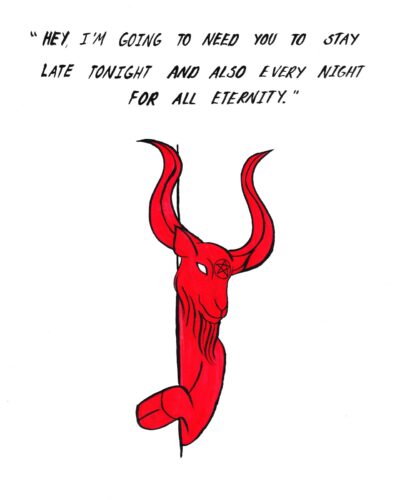The FT offers this insight.
Charlie Munger, Warren Buffett’s veteran sidekick, died this week. The vice-chair of investment group Berkshire Hathaway had a penchant for zingy aphorisms. The one I always remember is: “Capitalism without failure is like religion without hell.” […] Some Europeans do not get the success/failure-yin/yang thang.
To which I say, this writer is clearly a few cards short of a full deck. Their most remembered aphorism is broken with simple logic.
Religion says going to hell is punishment, whereas capitalism says repeated failure is common and even necessary to reach success. Does anyone say try going to hell a few times to get heaven? No, because then people would live without fear of failure, accept “go to hell” threats as a step to heaven.

Also, some basic wisdom about world religions poses a huge problem for the aphorism.
Taoism uses Yin/Yang to show an indivisable whole, a duality represented as parts in balance and inseparable to prove that fear of division (e.g. any moral dichotomy of good versus bad) is an unreal perception.
When you dig deeper into all this, and see what Europeans in fact DO get (e.g. quality of life balance, resistance to accelerationism), is that many (most, really) religions are practiced without any hell at all and for some perhaps obvious reasons:
- “Jesus isn’t talking about heaven [and thus doesn’t believe in a hell] because he doesn’t believe – he’s a Jew – he doesn’t believe in the separation of soul and body. He doesn’t think the soul is going to live on in heaven.”
- Hell was created by people positioning their religion to be more influential than family, community, and government. It’s a political tool, especially alluring among those seeking power and a way to undermine other effective forms of (moral) regulation.
- Hell then becomes an escape from accountability, because for those spreading the idea it “has never been anything more than a strategy for sparing themselves the unpleasant task of confronting the real implications of the beliefs they profess.”
Vengeful eternal punishment, while many self-professed capitalists claim to love such an idea, is literally the exact opposite of their actual road to success (dependent on charity and good will of others such as family and government, saving them from true or permanent loss).
In that sense capitalism — where healthy market functionality matters more than ostentatious brags by a select few about their rapid and unstoppable privilege to repeatedly fail — is just one part of a life that is better described as many failures inseparable and infused with some success.
Capitalism typically requires acceptance of failure coupled to robust systems for recovery, very unlike how some outlier religions try to manipulate sentiment (undermine other social constructs) by using a fear of some vague future (theoretical) possibility of an absolute unescapable hell.